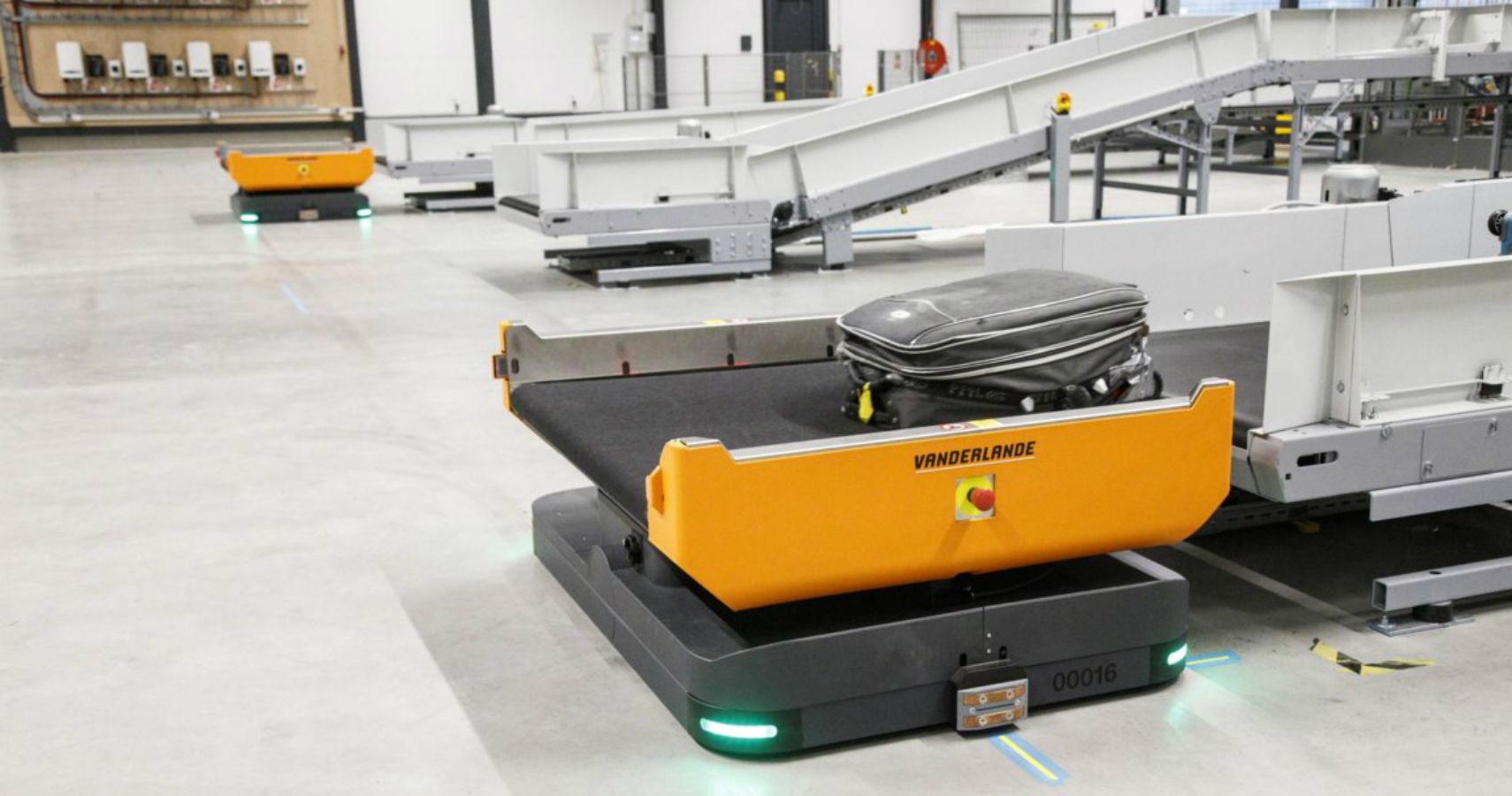Built at the same height as the existing stationary conveyor belts of yesteryear, these self-driving carts can pick up incoming luggage and carry it to the appropriate destination.
In recent years, we have increasingly seen robots and AI take over a number of different jobs, from cashiers to customer service. Now, robots may be one small step closer to making humans completely redundant as they are currently being trialed to take on the role of bag handlers at Rotterdam The Hague airport.
The robots in question resemble a small section of a conveyor belt and can navigate the airport floor like a Roomba.
PREVIOUSLY: PLANE NOSEDIVES FOR 18 SECONDS AFTER AUTOPILOT IS MISTAKENLY SET TO 'ALTITUDE ZERO'
Should the trial be a success, there are several advantages that this new system could bring. Firstly, they would be cheaper in the long run, as they do not require wages (or join unions). Secondly, they will be able to sort the baggage faster and use literally the quickest route to get from point A to point B, reducing the amount of time it takes to prepare an aircraft for take off. Finally, and arguably most importantly from a consumer perspective, the robots are far less likely to make a mistake and carry luggage to the wrong plane, leading to fewer lost bags and angry customers.
The robots are not just efficient in terms of time, but also with regards to the environment. They are powered by solar energy and have been designed so that every part of them is fully recyclable, making them zero-waste machines.
At the moment, the robots are being used to take luggage that has been checked in at Rotterdam The Hague itself, and carry the bags to the plane. However, if the project is given the green light, they could also be used to sort baggage from connecting flights in the future.
While you might think that the robots could lead to job losses, staff on the ground do not feel the same way. When the bags arrive at the planes, they still need to be loaded manually, so this new invention simply eases the workload of the human employees. The trial is due to last three months, after which officials at the airport will decide whether to continue or to retire the robots.
READ NEXT: SEATTLE AIRPORT WILL SOON ALLOW FRIENDS AND FAMILY PAST SECURITY FOR THE FIRST TIME IN 17 YEARS

